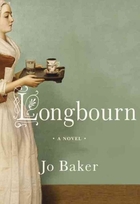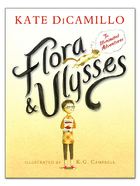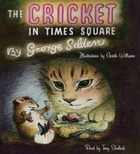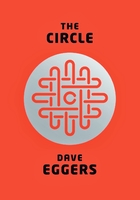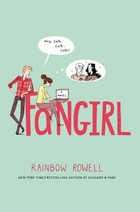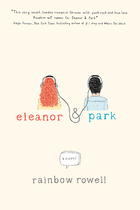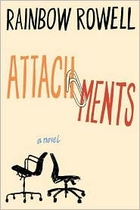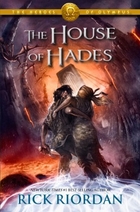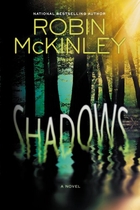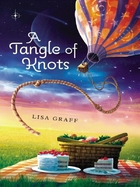Longbourn by Jo Baker tells a story that bustles behind and beneath the familiar world of Pride and Prejudice.
Sarah
was an orphan before the housekeeper at Longbourn took her on as a
housemaid. Now she scrubs floors, does laundry, helps prepare meals, and
does dozens of other tasks for the members of the Bennet family. Sarah
sometimes dreams of more -- of being a lady, or at least, not a servant
-- but Longbourn is a good place, all in all, and Sarah is lucky to be
there. When a new footman is hired, a taciturn man with a mysterious
past, Sarah is at first intrigued, and then, when he seems to snub her
in favor of keeping to himself, disdainful. Another man, a servant of
Mr. Bingley who has recently arrived in the neighborhood, also
fascinates Sarah, as he has ambitions beyond his current station. Will
he be Sarah's ticket to freedom, or does happiness lie with the
enigmatic but undeniably attractive footman?
One of the fascinating things about this story is the way it ties in to the familiar events of Pride and Prejudice,
but does not tell that story from a different perspective. Those
looking for a below-stairs view of Elizabeth and Mr. Darcy's romance may
be disappointed; Sarah has plenty going on in her own life, and the
concerns of her employers take a backseat to matters of her own heart.
The Bennets, though generally portrayed as kind employers, are also
exposed in some of the foibles that only servants would be privy to.
And, of course, some events in P&P have more of a bearing on the
servants' hall than others: the visit of Mr. Collins is a noteworthy
affair, since he will someday be the servants' employer, and could
decide to summarily fire all of them when he takes possession of the
house if he is not suitably impressed by the quality of service!
I
found this a highly enjoyable book, well-written and well-researched.
If you are an Austenophile or generally interested in historical fiction
about ordinary people, I certainly recommend this book.
(Reviewed from a copy borrowed through my library system.)
Tuesday, November 26, 2013
Monday, November 25, 2013
Flora & Ulysses by Kate DiCamillo
Flora and Ulysses: The Illuminated Adventures by Kate DiCamillo is a quirky story about a comic-book-obsessed girl and her poetry-loving squirrel.
Flora Belle Buckman is a cynic -- but even she is amazed when she sees a squirrel get sucked into a vacuum cleaner, and emerge triumphant. The ability to escape almost certain death by vacuum proves to be only one of Ulysses the Squirrel's extraordinary abilities. Of course, he has enemies, too . . .
To tell the truth, the plot of this story is not what sticks with me after reading -- it's the quirkiness that makes an impression. Amid the wacky squirrel-related adventures, there are some deeper musings on philosophical questions of life and love, elevating this above the level of "just another crazy superhero book." I liked it well enough, but did not love it.
(Reviewed from a copy borrowed through my library system.)
Flora Belle Buckman is a cynic -- but even she is amazed when she sees a squirrel get sucked into a vacuum cleaner, and emerge triumphant. The ability to escape almost certain death by vacuum proves to be only one of Ulysses the Squirrel's extraordinary abilities. Of course, he has enemies, too . . .
To tell the truth, the plot of this story is not what sticks with me after reading -- it's the quirkiness that makes an impression. Amid the wacky squirrel-related adventures, there are some deeper musings on philosophical questions of life and love, elevating this above the level of "just another crazy superhero book." I liked it well enough, but did not love it.
(Reviewed from a copy borrowed through my library system.)
Sunday, November 24, 2013
Republic of Thieves by Scott Lynch
I've eagerly anticipated Republic of Thieves by Scott Lynch.
If there's one group of people Locke Lamora is unlikely to want to work for, it is the Bondsmagi of Karthain. (Readers of previous volumes will know why!) But when they make him an offer that he literally can't refuse, he finds himself embroiled in Karthaki politics, facing off against none other than Sabetha -- a former member of Locke's gang, and Locke's first love. There's a lot of history between the two of them, and the political battle that the Bondsmagi have set up is quite real; neither can afford to expend anything less than their best effort. Who will triumph -- and will the cost of the battle be, once again, their friendship?
There are two stories being told here: the present Karthaki elections caper, and the past story from when Locke, Sabetha, and the gang were teenagers. I find that I liked this book better than a lot of reviewers -- both stories seemed strong to me, whereas in the past when Lynch has used flashbacks, they have generally only served the present-day storyline. In this case, the flashback story may actually be the stronger of the two, as the present-day storyline is pretty similar to what we've seen before: Locke is unwillingly roped in to working for a more powerful person or entity and must strain his reserves to make it out alive. The best thing about the present-day story is Sabetha. For once, Locke Lamora may not be the cleverest person in the room! And since the flashback story focuses on theatre -- a type of theatre not too far removed from our world's English Renaissance theatre -- I was bound to like it.
The book ends with a couple of minor twists and revelations, setting up for the next volume in the series without leaving us with the sort of cliffhanger that concluded Red Seas Under Red Skies.
(Reviewed from a copy borrowed through my library system.)
If there's one group of people Locke Lamora is unlikely to want to work for, it is the Bondsmagi of Karthain. (Readers of previous volumes will know why!) But when they make him an offer that he literally can't refuse, he finds himself embroiled in Karthaki politics, facing off against none other than Sabetha -- a former member of Locke's gang, and Locke's first love. There's a lot of history between the two of them, and the political battle that the Bondsmagi have set up is quite real; neither can afford to expend anything less than their best effort. Who will triumph -- and will the cost of the battle be, once again, their friendship?
There are two stories being told here: the present Karthaki elections caper, and the past story from when Locke, Sabetha, and the gang were teenagers. I find that I liked this book better than a lot of reviewers -- both stories seemed strong to me, whereas in the past when Lynch has used flashbacks, they have generally only served the present-day storyline. In this case, the flashback story may actually be the stronger of the two, as the present-day storyline is pretty similar to what we've seen before: Locke is unwillingly roped in to working for a more powerful person or entity and must strain his reserves to make it out alive. The best thing about the present-day story is Sabetha. For once, Locke Lamora may not be the cleverest person in the room! And since the flashback story focuses on theatre -- a type of theatre not too far removed from our world's English Renaissance theatre -- I was bound to like it.
The book ends with a couple of minor twists and revelations, setting up for the next volume in the series without leaving us with the sort of cliffhanger that concluded Red Seas Under Red Skies.
(Reviewed from a copy borrowed through my library system.)
Saturday, November 23, 2013
The Cricket in Times Square by George Selden
I'd been meaning to read The Cricket in Times Square
by George Selden for some time now. So, when I was browsing through
available audiobooks for a recent trip, I was pleased to come across
this -- and not only was it a book I had been meaning to read, but it
was narrated by Tony Shaloub!
Mario's family owns a newsstand in the Times Square subway station. One day, while minding the stand, Mario hears a sound one doesn't usually hear in New York City: the soft chirping of a cricket. The cricket in question is Chester, who inadvertently caught a ride in from Connecticut in a picnic basket. Mario is fascinated by the small creature and makes a pet of him -- albeit one that lives at the newsstand, since his mother will not allow the insect into her house. At the newsstand, Chester is soon befriended by Tucker Mouse and Harry Cat, two street-smart city dwellers who appreciate Chester's friendly personality and musical ability. Chester enjoys life with his new friends, but then, disaster strikes, and it is at least partially Chester's fault. Can he find a way to make up for it to his benefactors -- and will he ever find his way back home to Connecticut?
I'm not sure how I missed out on this book as a kid, since it's just the sort of thing I would have liked. I enjoyed it now, of course, though it is a little dated in spots (Mario visits Chinatown and the depictions of his visit there don't sit as well with a modern audience as they may have in the past). Unsurprisingly, Shaloub's narration is excellent and contributed to my enjoyment of the story.
(Reviewed from a digital audiobook borrowed through my library system.)
Mario's family owns a newsstand in the Times Square subway station. One day, while minding the stand, Mario hears a sound one doesn't usually hear in New York City: the soft chirping of a cricket. The cricket in question is Chester, who inadvertently caught a ride in from Connecticut in a picnic basket. Mario is fascinated by the small creature and makes a pet of him -- albeit one that lives at the newsstand, since his mother will not allow the insect into her house. At the newsstand, Chester is soon befriended by Tucker Mouse and Harry Cat, two street-smart city dwellers who appreciate Chester's friendly personality and musical ability. Chester enjoys life with his new friends, but then, disaster strikes, and it is at least partially Chester's fault. Can he find a way to make up for it to his benefactors -- and will he ever find his way back home to Connecticut?
I'm not sure how I missed out on this book as a kid, since it's just the sort of thing I would have liked. I enjoyed it now, of course, though it is a little dated in spots (Mario visits Chinatown and the depictions of his visit there don't sit as well with a modern audience as they may have in the past). Unsurprisingly, Shaloub's narration is excellent and contributed to my enjoyment of the story.
(Reviewed from a digital audiobook borrowed through my library system.)
The Circle by Dave Eggers
I read The Circle
by Dave Eggers for the One Book, One LibraryThing initiative.
Mae is stuck in a dead-end job at the public utilities in the town where she grew up. Desperate for a better position, she swallows her pride and approaches her college friend Annie, who is a high-ranking employee at The Circle, the company that has revolutionized social media and online interaction. When Mae is hired on in an entry-level position at The Circle, she is ecstatic. The campus is huge, offering seemingly limitless perks to its employees, from a sample room full of free clothes and products, to dorms where staff can stay if they are working late or attending a social function. The workload is challenging, but Mae finds that she can easily keep up, and she loves the constant feedback from both customers and her supervisors, so she always knows exactly where she stands. In fact, by increasing her social media interactions, she can actually improve her standing among her fellow employees. Granted, this leaves little time for any non-Circle interactions with family or former friends, but it's a small price to pay to be part of the company that is creating the future of the Internet. And the more Mae rises in the staff hierarchy at The Circle, the more she buys in to its philosophy of transparency.
I found this an enjoyable enough read -- not a favorite, and certainly not one that I want to purchase and reread, but I didn't hate every minute of it, either. On the positive side, it was a fast, gripping read, which I finished in a couple of days. I thought the setting was good (I could clearly picture the campus, even though parts of it seemed impractical -- multi-level glass dining area, really?), and I did spend a lot of time thinking about what my responses would be if I were in Mae's shoes. Since I'm sure that's what the author intended, the book was a success on that front.
On the other hand, the book does suffer from a few basic issues -- it's message-heavy, for one thing, and none of the characters are particularly likeable. Also, the author obviously didn't do his homework in several areas, leading to some factual inaccuracies that can take the reader right out of the story. Mae is also not particularly believable as a woman, nor does her character show much depth. The latter may have been an authorial choice rather than an unintentional flaw, but the former is almost certainly a weakness in the writing. Also -- I'm not sure if this is actually a negative, but I knew one of the major plot twists early on. It didn't take away from my enjoyment of the story; on the contrary, I felt quite pleased to be vindicated when that plot twist was revealed! However, I did wonder why Mae didn't see through it sooner.
I'm really looking forward to the big group discussion about this book, as I know it has engendered a lot of strong reactions, both positive and negative.
(Reviewed from a copy borrowed through my library system.)
Mae is stuck in a dead-end job at the public utilities in the town where she grew up. Desperate for a better position, she swallows her pride and approaches her college friend Annie, who is a high-ranking employee at The Circle, the company that has revolutionized social media and online interaction. When Mae is hired on in an entry-level position at The Circle, she is ecstatic. The campus is huge, offering seemingly limitless perks to its employees, from a sample room full of free clothes and products, to dorms where staff can stay if they are working late or attending a social function. The workload is challenging, but Mae finds that she can easily keep up, and she loves the constant feedback from both customers and her supervisors, so she always knows exactly where she stands. In fact, by increasing her social media interactions, she can actually improve her standing among her fellow employees. Granted, this leaves little time for any non-Circle interactions with family or former friends, but it's a small price to pay to be part of the company that is creating the future of the Internet. And the more Mae rises in the staff hierarchy at The Circle, the more she buys in to its philosophy of transparency.
I found this an enjoyable enough read -- not a favorite, and certainly not one that I want to purchase and reread, but I didn't hate every minute of it, either. On the positive side, it was a fast, gripping read, which I finished in a couple of days. I thought the setting was good (I could clearly picture the campus, even though parts of it seemed impractical -- multi-level glass dining area, really?), and I did spend a lot of time thinking about what my responses would be if I were in Mae's shoes. Since I'm sure that's what the author intended, the book was a success on that front.
On the other hand, the book does suffer from a few basic issues -- it's message-heavy, for one thing, and none of the characters are particularly likeable. Also, the author obviously didn't do his homework in several areas, leading to some factual inaccuracies that can take the reader right out of the story. Mae is also not particularly believable as a woman, nor does her character show much depth. The latter may have been an authorial choice rather than an unintentional flaw, but the former is almost certainly a weakness in the writing. Also -- I'm not sure if this is actually a negative, but I knew one of the major plot twists early on. It didn't take away from my enjoyment of the story; on the contrary, I felt quite pleased to be vindicated when that plot twist was revealed! However, I did wonder why Mae didn't see through it sooner.
I'm really looking forward to the big group discussion about this book, as I know it has engendered a lot of strong reactions, both positive and negative.
(Reviewed from a copy borrowed through my library system.)
Friday, November 22, 2013
Fangirl by Rainbow Rowell
And, having read Attachments and Eleanor & Park, of course I immediately grabbed Fangirl by Rainbow Rowell.
Cather writes fanfic -- and she writes it really well. In fact, her long-running fic, based on the über-popular Simon Snow fantasy series, has thousands of fans. And when she goes off to college, Cath plans to continue writing -- in fact, when she gets to college, she finds that the comfort of writing the fanfic is all that keeps her going some days. Her roommate is intimidating, the campus is overwhelming, and her twin sister, who opted to live in a different residence hall, wants to have nothing to do with Cath. Meanwhile, her father may be kind of self-destructing back at home. But it's not all downers -- Cath is accepted into an upper-level writing course, eventually makes peace with her roommate, and meets Levi, an ag student who is relentlessly charming (and who admits to not having read the Simon Snow series. "But I've seen the movies!" he protests). Then again, her lit professor views fanfic as little more than plagiarism, and Levi . . . is dating Cath's roommate. And then there's Nick, who meets with Cath regularly to collaborate on a writing project . . . Well, it's complicated. But throughout, Cath handles things with wit and humor.
This may be my favorite Rainbow Rowell book yet, probably because I was just like Cath when I started college (well, except for the whole fanfic thing). If I had been at a big school, I too would have been too introverted and intimidated to locate the dining hall. So there's an element of nostalgia playing into my love for this book. Also, while the Simon Snow series doesn't actually exist, it's pretty obviously a stand-in for Harry Potter (my love for which is well-documented). I've never wandered into the wilds of fanfic, but I can sympathize with wanting more and more of a series. Cath writes slash, basically analogous to Harry/Draco (just, yikes), but it's her enthusiasm and obvious skill that's really impressive, and the way that she has to find her way from writing in the comfortable, familiar world created by another author, to creating her own stories and finding her own voice and strength as a writer. (I can't help but wonder if Rowell is partially basing the character on Cassandra Clare, who got her start writing Harry Potter fanfic featuring Draco.) The romance aspect of the book ties up almost too neatly, but there are so many things going on in the story that I wasn't bothered by that -- it's less about Cath and her romance, and more a general coming-of-age story that includes a romance.
I'm not sure that I would recommend this book as widely as I would Eleanor & Park -- but on the other hand, this is the book I'm more likely to go back and reread. I would definitely recommend it to fellow Harry Potter fans, fellow introverted college students or former college students, and especially to anyone who has been part of a fandom, particularly lovers of fanfic.
(Reviewed from a copy borrowed through my library system.)
Cather writes fanfic -- and she writes it really well. In fact, her long-running fic, based on the über-popular Simon Snow fantasy series, has thousands of fans. And when she goes off to college, Cath plans to continue writing -- in fact, when she gets to college, she finds that the comfort of writing the fanfic is all that keeps her going some days. Her roommate is intimidating, the campus is overwhelming, and her twin sister, who opted to live in a different residence hall, wants to have nothing to do with Cath. Meanwhile, her father may be kind of self-destructing back at home. But it's not all downers -- Cath is accepted into an upper-level writing course, eventually makes peace with her roommate, and meets Levi, an ag student who is relentlessly charming (and who admits to not having read the Simon Snow series. "But I've seen the movies!" he protests). Then again, her lit professor views fanfic as little more than plagiarism, and Levi . . . is dating Cath's roommate. And then there's Nick, who meets with Cath regularly to collaborate on a writing project . . . Well, it's complicated. But throughout, Cath handles things with wit and humor.
This may be my favorite Rainbow Rowell book yet, probably because I was just like Cath when I started college (well, except for the whole fanfic thing). If I had been at a big school, I too would have been too introverted and intimidated to locate the dining hall. So there's an element of nostalgia playing into my love for this book. Also, while the Simon Snow series doesn't actually exist, it's pretty obviously a stand-in for Harry Potter (my love for which is well-documented). I've never wandered into the wilds of fanfic, but I can sympathize with wanting more and more of a series. Cath writes slash, basically analogous to Harry/Draco (just, yikes), but it's her enthusiasm and obvious skill that's really impressive, and the way that she has to find her way from writing in the comfortable, familiar world created by another author, to creating her own stories and finding her own voice and strength as a writer. (I can't help but wonder if Rowell is partially basing the character on Cassandra Clare, who got her start writing Harry Potter fanfic featuring Draco.) The romance aspect of the book ties up almost too neatly, but there are so many things going on in the story that I wasn't bothered by that -- it's less about Cath and her romance, and more a general coming-of-age story that includes a romance.
I'm not sure that I would recommend this book as widely as I would Eleanor & Park -- but on the other hand, this is the book I'm more likely to go back and reread. I would definitely recommend it to fellow Harry Potter fans, fellow introverted college students or former college students, and especially to anyone who has been part of a fandom, particularly lovers of fanfic.
(Reviewed from a copy borrowed through my library system.)
Eleanor and Park by Rainbow Rowell
I've actually been hearing about Eleanor & Park by Rainbow Rowell ever since it came out this past February -- so much so, in fact, that I resisted reading it. But after reading Attachments, I knew I had to pick this one up.
When Park meets Eleanor, it's not exactly love at first sight. Park isn't one of the cool kids; he gets by by keeping his head down. Which is obviously not what Eleanor is doing when she gets on the bus the first day of school, all wild red hair and loud clothes. But there's an open seat next to Park, and when nobody else will let her sit down, Park ungraciously allows her to take the space. Over the next few weeks, Park notices that Eleanor is reading his comic books over his shoulder. The relationship progresses, and soon they are sharing mix tapes. Then they find that they are friends, and then, eventually, more than friends. But this is not as easy as it sounds -- Eleanor is a hard person to get close to, partly because she is hiding how truly dire her home life is from the rest of the world -- even from Park. Maybe even from herself.
The characters, oh, the characters in this book! The titular characters are great, of course, but the secondary characters are really fascinating and complex as well. I love Park's parents. Throughout the book, I could see them making parenting choices that were clearly in what they saw as Park's best interest, even when I (or Park) didn't agree with them. Eleanor's mother and stepfather, on the other hand -- what a pair! The stepfather is sleazy and terrifying, but the mother is the one I struggle with most -- not because she is poorly written, but because the writing is excellent and I have known people like this, which makes her all the more troubling. And throughout the story, I kept thinking, Park can't fix this -- but somebody needs to.
And so, even though I originally hesitated because I don't care for books set in the '80s, and because I don't love graphic novels or heavy metal, I find that I loved this book, and would recommend it . . . even if you don't think it sounds like your sort of thing.
(Reviewed from a copy borrowed through my library system.)
When Park meets Eleanor, it's not exactly love at first sight. Park isn't one of the cool kids; he gets by by keeping his head down. Which is obviously not what Eleanor is doing when she gets on the bus the first day of school, all wild red hair and loud clothes. But there's an open seat next to Park, and when nobody else will let her sit down, Park ungraciously allows her to take the space. Over the next few weeks, Park notices that Eleanor is reading his comic books over his shoulder. The relationship progresses, and soon they are sharing mix tapes. Then they find that they are friends, and then, eventually, more than friends. But this is not as easy as it sounds -- Eleanor is a hard person to get close to, partly because she is hiding how truly dire her home life is from the rest of the world -- even from Park. Maybe even from herself.
The characters, oh, the characters in this book! The titular characters are great, of course, but the secondary characters are really fascinating and complex as well. I love Park's parents. Throughout the book, I could see them making parenting choices that were clearly in what they saw as Park's best interest, even when I (or Park) didn't agree with them. Eleanor's mother and stepfather, on the other hand -- what a pair! The stepfather is sleazy and terrifying, but the mother is the one I struggle with most -- not because she is poorly written, but because the writing is excellent and I have known people like this, which makes her all the more troubling. And throughout the story, I kept thinking, Park can't fix this -- but somebody needs to.
And so, even though I originally hesitated because I don't care for books set in the '80s, and because I don't love graphic novels or heavy metal, I find that I loved this book, and would recommend it . . . even if you don't think it sounds like your sort of thing.
(Reviewed from a copy borrowed through my library system.)
Thursday, November 21, 2013
Attachments by Rainbow Rowell
I picked up Attachments by Rainbow Rowell after hearing about it from a friend, and I'm so glad I did, as I may have just discovered another favorite author.
It's 1999, and the company Lincoln works for is wary of giving their employees the freedom of Internet and email. That's where Lincoln comes in. He probably wouldn't have taken the "Internet Security" job if he had known from the start that it would mean reading people's personal emails. Take, for instance, the constant stream of banter between Jennifer and Beth. Lincoln knows he should send them a form notice about not using the internal email system for personal business, but the stuff they're chatting about is so innocuous . . . and he finds that he kind of looks forward to reading their exchanges. In fact, he finds that he genuinely likes both women -- particularly Beth. But how can he ever admit to her that he became interested by reading her personal email?
I just loved this story. Lincoln, with his geekiness and awkwardness, and his sense of being adrift in the world, is such a great character; I just wanted to pat him on the back and tell him it would be okay. I also loved the plotting; I really couldn't tell if Lincoln and Beth would ever get together, or whether this would just be some kind of sad learning experience for Lincoln. All in all, a fantastic read, probably in my top ten this year.
(Reviewed from a copy borrowed through my library system.)
It's 1999, and the company Lincoln works for is wary of giving their employees the freedom of Internet and email. That's where Lincoln comes in. He probably wouldn't have taken the "Internet Security" job if he had known from the start that it would mean reading people's personal emails. Take, for instance, the constant stream of banter between Jennifer and Beth. Lincoln knows he should send them a form notice about not using the internal email system for personal business, but the stuff they're chatting about is so innocuous . . . and he finds that he kind of looks forward to reading their exchanges. In fact, he finds that he genuinely likes both women -- particularly Beth. But how can he ever admit to her that he became interested by reading her personal email?
I just loved this story. Lincoln, with his geekiness and awkwardness, and his sense of being adrift in the world, is such a great character; I just wanted to pat him on the back and tell him it would be okay. I also loved the plotting; I really couldn't tell if Lincoln and Beth would ever get together, or whether this would just be some kind of sad learning experience for Lincoln. All in all, a fantastic read, probably in my top ten this year.
(Reviewed from a copy borrowed through my library system.)
Friday, November 15, 2013
The House of Hades by Rick Riordan
The House of Hades
by Rick Riordan is the fourth book in the Heroes of Olympus series.
This review will contain some spoilers for earlier books in the series.
Gaea the earth goddess is waking, and this means trouble for all of the Olympians and demigods. As Jason, Piper, Leo, Hazel, Frank, and Nico fight to continue their quest, Percy and Annabeth struggle to survive in Tartarus. If both groups of demigods can arrive at the Doors of Death at the same time -- Percy and Annabeth from Tartarus, and the others from the human realm -- Percy and Annabeth can be saved, and the monsters can be stopped from constantly regenerating. But neither journey will be easy. . .
This series continues to be a lot of fun, packed with action and humor and a little bit of romance, too. The problem with having such a large cast of characters is that it's hard to give each of them time to shine, but I actually thought that was done better in this book than in the previous one. Frank, Hazel, Leo, and Nico each had nice moments of character development in this book, and since Percy and Annabeth were apart from the rest of the group, they also had plenty of page space. This book also manages to balance the series dynamic with the story arc of the individual book -- it's the penultimate book in the series, but it didn't feel like it was just there to build up to the final battle. I'm looking forward to The Blood of Olympus next fall, but I'll probably try to reread not only the Heroes of Olympus, but the Percy Jackson series as well, before that book's release.
(Reviewed from a copy borrowed through my library system.)
Gaea the earth goddess is waking, and this means trouble for all of the Olympians and demigods. As Jason, Piper, Leo, Hazel, Frank, and Nico fight to continue their quest, Percy and Annabeth struggle to survive in Tartarus. If both groups of demigods can arrive at the Doors of Death at the same time -- Percy and Annabeth from Tartarus, and the others from the human realm -- Percy and Annabeth can be saved, and the monsters can be stopped from constantly regenerating. But neither journey will be easy. . .
This series continues to be a lot of fun, packed with action and humor and a little bit of romance, too. The problem with having such a large cast of characters is that it's hard to give each of them time to shine, but I actually thought that was done better in this book than in the previous one. Frank, Hazel, Leo, and Nico each had nice moments of character development in this book, and since Percy and Annabeth were apart from the rest of the group, they also had plenty of page space. This book also manages to balance the series dynamic with the story arc of the individual book -- it's the penultimate book in the series, but it didn't feel like it was just there to build up to the final battle. I'm looking forward to The Blood of Olympus next fall, but I'll probably try to reread not only the Heroes of Olympus, but the Percy Jackson series as well, before that book's release.
(Reviewed from a copy borrowed through my library system.)
Wednesday, November 6, 2013
Shadows by Robin McKinley
I read Shadows by Robin McKinley because Robin McKinley, you guys, Robin McKinley. (She's one of the authors that I will always be eager to pick up and read, even if I do feel that her early work was some of her best.)
Maggie has stepfather problems -- namely, her new stepfather always seems to be accompanied by threatening, roiling shadows. In a world where technology has been developed to replace and subdue magic, the shadows seem unsettlingly like something that shouldn't be allowed to exist any more. Or maybe Maggie just isn't crazy about the idea of her mother getting remarried. As magic seems to strengthen its grip on Maggie's technology-focused world, Maggie learns that many things are not what they seem. Also dogs, boys, and a likeable Algebra textbook. (I know, that last one seems a little bit out there, but remember, it's fantasy.)
In some ways, this is very different from what McKinley has written before -- more teenage angst, and a setting that feels more like the future than the past -- but in other ways it is trademark McKinley. The dogs, for instance, and the way the magic works at the climax of the book, that I find hard to pin down but understandable in context. Also the rambling, which is one of McKinley's charms but may be irritating to some readers who don't want to go wandering off into backstory in the middle of a paragraph of dialogue. This isn't going to be up with Beauty and The Hero and the Crown as a new favorite McKinley, but it's sitting comfortably in the midrange.
(Reviewed from a copy borrowed through my library system.)
Maggie has stepfather problems -- namely, her new stepfather always seems to be accompanied by threatening, roiling shadows. In a world where technology has been developed to replace and subdue magic, the shadows seem unsettlingly like something that shouldn't be allowed to exist any more. Or maybe Maggie just isn't crazy about the idea of her mother getting remarried. As magic seems to strengthen its grip on Maggie's technology-focused world, Maggie learns that many things are not what they seem. Also dogs, boys, and a likeable Algebra textbook. (I know, that last one seems a little bit out there, but remember, it's fantasy.)
In some ways, this is very different from what McKinley has written before -- more teenage angst, and a setting that feels more like the future than the past -- but in other ways it is trademark McKinley. The dogs, for instance, and the way the magic works at the climax of the book, that I find hard to pin down but understandable in context. Also the rambling, which is one of McKinley's charms but may be irritating to some readers who don't want to go wandering off into backstory in the middle of a paragraph of dialogue. This isn't going to be up with Beauty and The Hero and the Crown as a new favorite McKinley, but it's sitting comfortably in the midrange.
(Reviewed from a copy borrowed through my library system.)
A Tangle of Knots by Lisa Graff
A Tangle of Knots by Lisa Graff is a quirky fantasy full of cakes and luggage.
Eleven-year-old Cadence has a Talent for baking cakes -- she can look at a person and know exactly how to make the kind of cake they would like best. Cady is an orphan, despite the fact that she lives with a woman whose Talent is matching orphans to their perfect families. Cady's past is more mysterious than most, however, and it will take a special train of circumstances, involving a prankster, a Talent thief, a peanut butter factory, a powder-blue suitcase, and more before everyone in the story ends up exactly where they are supposed to be.
This book reminded me inevitably of Savvy by Ingrid Law, what with the special Talents that many of the characters possess. The author did many things well, particularly telling the story from multiple distinct viewpoints and taking a convoluted plot and bringing all of the elements together in the end. There are also delicious-sounding cake recipes interspersed -- that, and the folksy quirkiness reminded me at times of Pie by Sarah Weeks. I thought this was a good story, though not (at least for this reader) a great one.
(Reviewed from a copy borrowed through my library system.)
Eleven-year-old Cadence has a Talent for baking cakes -- she can look at a person and know exactly how to make the kind of cake they would like best. Cady is an orphan, despite the fact that she lives with a woman whose Talent is matching orphans to their perfect families. Cady's past is more mysterious than most, however, and it will take a special train of circumstances, involving a prankster, a Talent thief, a peanut butter factory, a powder-blue suitcase, and more before everyone in the story ends up exactly where they are supposed to be.
This book reminded me inevitably of Savvy by Ingrid Law, what with the special Talents that many of the characters possess. The author did many things well, particularly telling the story from multiple distinct viewpoints and taking a convoluted plot and bringing all of the elements together in the end. There are also delicious-sounding cake recipes interspersed -- that, and the folksy quirkiness reminded me at times of Pie by Sarah Weeks. I thought this was a good story, though not (at least for this reader) a great one.
(Reviewed from a copy borrowed through my library system.)
Subscribe to:
Comments (Atom)
